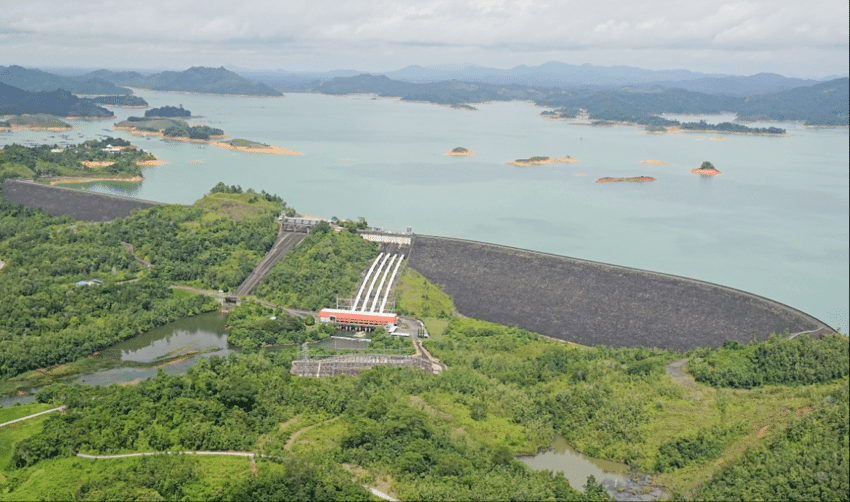
The Batang Ai resettlement scheme moved 26 longhouses of Ibans to another area because of flooding due to the hydroelectric dam across the Batang Ai Wong Irup. The Iban received cash compensation and were given 11 acres of land consisting of five acres of rubber, three acres of cocoa, two acres of hill padi and a one-acre garden plot.
Once resettled, the family was provided with a dwelling unit in a longhouse built by the government. They had to use their cash as a deposit for the dwelling. The survey was taken in 1989.
The results of a survey were as follows:
Income
Over 80% of the respondents perceive their old homes as being a better place to earn a living implying they were getting a higher income before they were resettled. Income from their former village came from traditional crops such as hill padi, rubber, pepper, fruits, sale of forest products, harvests from hunting, fishing or other free food from the jungle. In the government scheme, the settlers said they had to pay for water and electricity. To them, these payments tend to eat up too much of income. It was for this reason that some of the residents refused to move out of the “danger area” of the Batang Ai government scheme.
Part-Time Jobs
It was not surprising that 88% of the residents considered the drowned valley (their former home) to be a better place in regards to part-time jobs. Over 88% of the people were in favour of their former valley in terms of part-time jobs.
Children’s Schooling
Over half (58%) consider the government move offered better opportunities for their children. 57% of the males and 60% of the females agreed the government scheme had better schooling
Food Availability
Food may either be grown by the farmer, gathered from the forest (including hunting and fishing) or purchased. To purchase food, a farmer must have access to cash or buy on credit. 85% of the farmers agree the flooded place was a better place to gather food. Only 6% think food is better from the local sundry shop.
Water Supply
Domestic water supply fulfils four basic needs, drinking, washing, cooking and bathing. 41% of the people favour the government scheme while 28% feel their former flooded area was better. About one-third of the respondents feel that piped water into their homes is better.
Electricity Supply
As expected, the vast majority agreed the present site was better as their former site lacked electricity.
Health
A majority (60%) feel that health benefits are better in their present place than their former longhouses. 30% see no difference in their former longhouses and their present site.
Travel
Most rural people have to travel to town to obtain their daily supplies which are not available at the kampong sundry shop. These may include food, medicine and agricultural products. Some people have to travel to town markets to sell their produce. Over 80% of the people agreed the roads and transportation was much better than their former home.
Pepper Yields
For over 100 years the pepper yields have been an important crop for the Iban. 75% of the people believed their former home gave them a better pepper yield.
Cocoa yields
66% believe there is no difference in the yield of cocoa in their former home as opposed to where they live now. This is because they did not grow cocoa in their former areas.
Yields of fruit
Over 90% of the people believe fruits were more available in their former homes. Only one female believed fruit production was better in the new area. 10% were indifferent to the question.
Fertilizer availability
43% of the people think fertilizer is better in their new home while 33% are not sure. The rest feel a sentimental value to the old homes.
Availability of Pesticides.
The availability of pesticides is the same for fertilizer.
Agricultural marketing
Farm products will bring in cash income to farmers if these products are marketed on time and at a reasonable price. 58% believe there is a better time now. The rest believe the old place was better when there was a middleman involved.
Time for Padi Cultivation
A vast majority feel the old place gave them more time for other activities than the new place. This includes the rituals involved in padi cultivation.
Time for Hunting
Being resettled in a government scheme, it was anticipated that life under the scheme would provide little time for hunting. 95% of the respondents agreed.
Time to Relax
Only 51% of the people felt there was more time for relaxation.
When all the calculations were finished (I am not going to add those to the paper) 80% had some regrets about moving to the government scheme while only 20 % have something good to say about the new place.
Fr: Development and Changes in Batang Ai Sarawak: Perceptions of a Resettled Iban Community by Ahmed Mahdzan Ayob and Noran Fauziah Yaakub in the Sarawak Museum Journal December 1991
Our book History of the Sarawak River Valley Early Days to 1840 is available as an e-book on Amazon.Com
